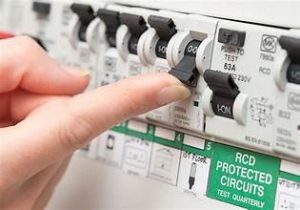If your home’s electrical system keeps shutting down certain circuits, you’re not alone. Tripped breakers are one of the most common household electrical issues, but understanding why they happen is the first step toward fixing them. It’s more than just a nuisance; frequent tripping can signal deeper electrical problems that may pose a safety risk. Whether it’s a single outlet or your entire kitchen losing power, persistent tripping is not something to ignore. In many cases, early attention can prevent more costly repairs—or even serious hazards—down the road.
What Causes a Circuit Breaker to Trip?
A circuit breaker’s job is to protect your home by shutting off power when it detects unsafe conditions. Here are the most common reasons this happens:
1. Overloaded Circuit
This occurs when too many appliances or devices draw power from the same circuit. For example, running a microwave, toaster, and coffee maker all at once on the same kitchen circuit can easily overload it. When the demand exceeds what the wiring can handle, the breaker trips to prevent overheating and potential fires.
2. Short Circuit
Short circuits are more serious and happen when a hot wire touches a neutral or ground wire. This causes a large surge of current that the breaker cannot handle, leading to an immediate trip. You might notice a burning smell or see scorch marks near the outlet—clear signs that you should call a professional.
3. Ground Fault
Ground faults are similar to short circuits but occur when a hot wire contacts a grounded surface, like a metal electrical box or appliance frame. These are especially common in bathrooms, kitchens, and outdoor outlets—areas with more moisture that increase risk.
4. Faulty Appliances
Sometimes the issue isn’t the wiring but the appliance itself. A malfunctioning toaster or space heater can cause repeated tripping. Unplugging devices one at a time and resetting the breaker can help you isolate the culprit.
5. Aging or Damaged Wiring
Older homes or those with DIY electrical work are more prone to issues. Over time, wires degrade, insulation wears out, and connections loosen, all of which can cause tripping. If your house was built decades ago and you’re experiencing frequent issues, it might be time for a wiring inspection.
Why It Matters
Ignoring frequently tripped breakers isn’t just annoying—it’s potentially dangerous. Breakers trip to prevent overheating, electrical fires, and shock. Each time it trips, it’s doing its job to protect you, but repeated incidents may mean your system is under serious stress. If your circuits are trying to tell you something, it’s best to listen.
What You Can Do
- Unplug unused devices on the affected circuit to reduce the load.
- Check for visible signs of damage or heat around outlets.
- Avoid daisy-chaining power strips, especially with high-draw appliances.
- Call a licensed electrician if the problem persists or if you suspect wiring issues.
If you’re looking for reliable help, many trusted providers of electrical services in Colorado Springs can inspect, diagnose, and repair your home’s electrical system to keep your family safe.
Contact SoCo Heating and Cooling today to schedule service. So Cool. So Cozy.

